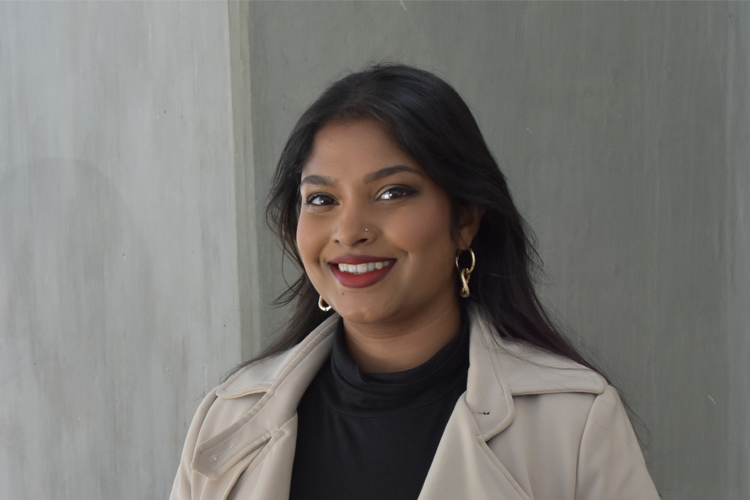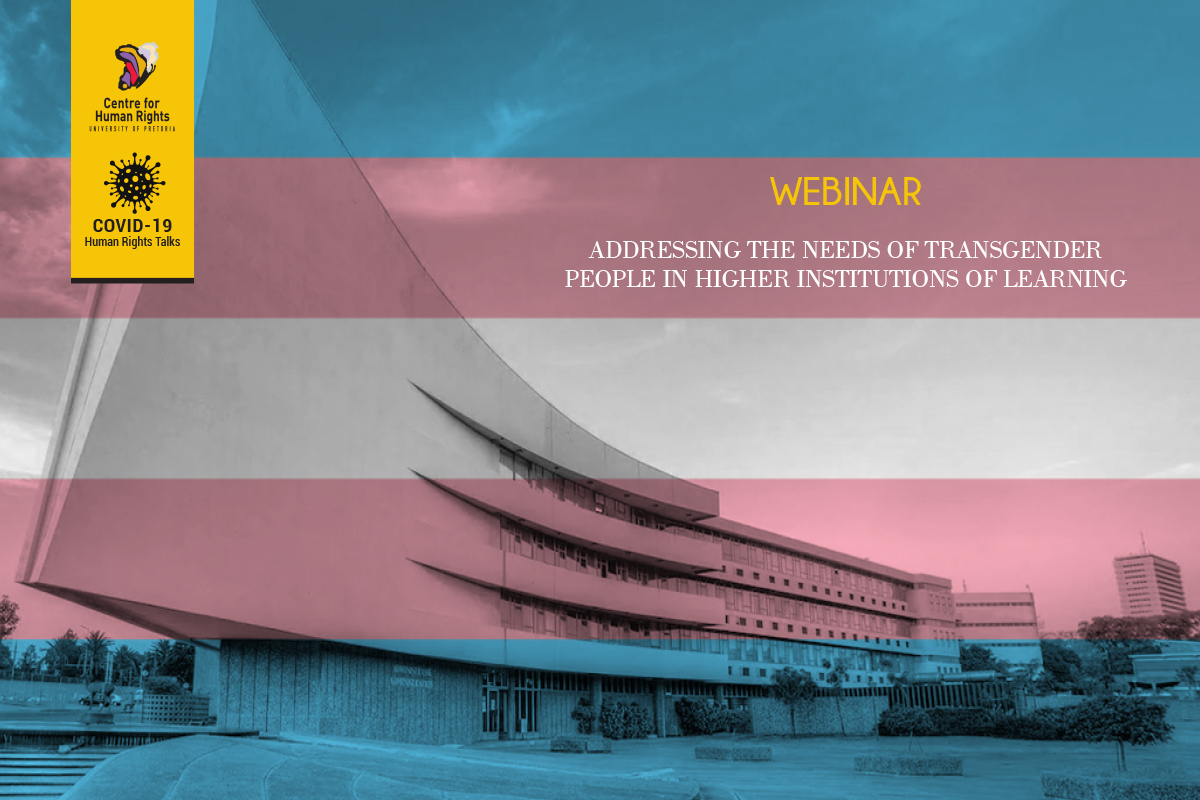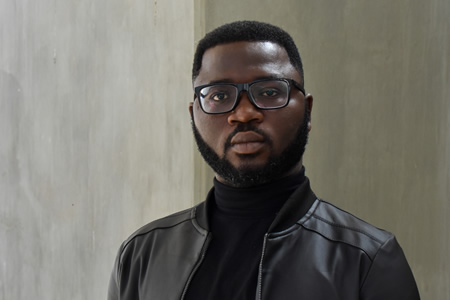On 11 August 2020, the Centre for Human Rights, in collaboration with the Centre for Sexualities, AIDS & Gender (CSA&G) at the University of Pretoria (UP), co-hosted a webinar on the UP Trans Protocol (the ‘Protocol’), a document developed for UP’s Institutional Transformation Committee (ITC) to address the needs of transgendered, intersex and gender-diverse students and staff members. The Protocol hopes to enable the eradication of discrimination against transgender (trans), intersex, gender non-conforming and non-binary members of the student and staff body.
In 2018, members of the transgender community at UP requested the assistance of Mr. Pierre Brouard of CSA&G on getting institutional recognition for the needs of transgender people. A draft of the Protocol was thereafter developed by a task team consisting of various stakeholders. This draft was formally presented to the ITC and was disseminated to different faculties and departments for further comments. Once that stage is finalised and the comments have been incorporated, the document should be sent to the executive for approval to become part of the policy-framework of the University. The webinar, with a panel consisting of various stakeholders in the project was organised to drive conversation on and raise awareness of the Protocol.
Watch Webinar
Dr Anthony Brown, associate Professor in Inclusive Education and Life Orientation at the Department of Educational Psychology, University of Johannesburg, moderated the panel discussion. Dr Matete Madiba from the ITC reflected on the process brought forward to approve and circulate the Protocol within different departments of the University. Sylvester Kazibwe, a UP student and transgender activist, provided a comparison between his experiences at different institutions and reflected on the challenges which hinder transgender students from integrating into institutions of higher education. Misgendering in particular is a big challenge to trans students in environments where their gender identity is not affirmed and can impact their learning experience. Sarah Matseke, from the UP Transformation Office, reflected on the challenges in doing transformation work with a particular focus on language and how more information and sensitisation work is needed to be done to inform people of the correct language to use and the implications of misgendering.
Pierre Brouard provided an overview of the UP Trans Protocol and how the document can be used to meet the needs of gender diverse students and staff. One of the challenges they face is that there is difficulty in getting recognition for their gender identity in situations where they have not taken legal steps to obtain recognition of their correct pronouns on their identification documentation. Also, the requisite legal steps take a long time to process. Pierre reflected on the possibilities available for introducing processes which allow for the recognition of gender identity through the administration processes and the role of IT in changing gender markers. Another issue raised was the option of making administrative processes available for persons who are not formally transitioning or changing their details with the Department of Home Affairs but who still wish to have their gender diversity affirmed.
Professor Anton Kok, a law lecturer at UP, discussed the framework of the UP Anti-Discrimination Policy and how this policy is structured to allow aggrieved individuals and groups or their representatives to report any prohibited discrimination through the policy. The Anti-Discrimination Policy is meant to be an inclusive policy which was designed to prevent and address discrimination on any grounds in the university environment.
One of the big questions posed throughout the discussion was whether UP should have a separate policy for transgender persons who are transitioning or will begin transition during the course of their studies or employment at the university and other institutions of higher learning. Thiruna Naidoo, a project officer at Centre for Human Rights, touched on the difficulties transgender and gender diverse people face in obtaining formal recognition for their gender identity and noted that, particularly for students, the university space is often the first environment that they are free to come out in.
In closing the panel, Dr Brown called for safe and inclusive spaces for all, particularly in higher institutions of learning and commended the University of Pretoria and the student-led approach in initiating the development of the UP Trans Protocol. The hope is that the guidelines of the document will soon be incorporated into the university’s policy framework and help create an affirming environment for transgender, gender diverse and intersex people.
For more information, please contact:

Tel: +27 (0)12 420 3151
thiruna.naidoo@up.ac.za



